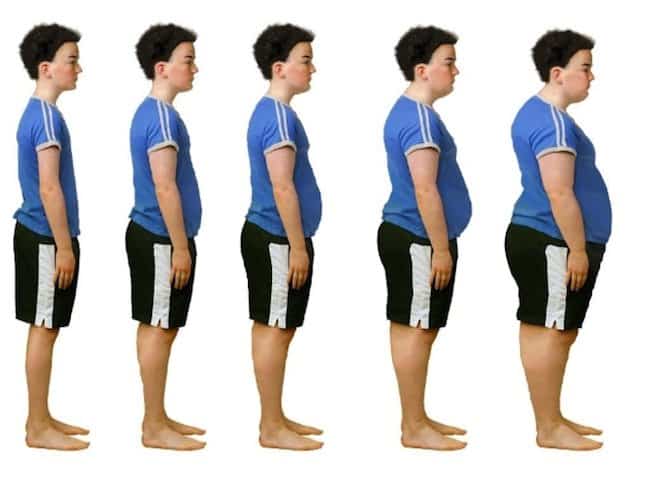
Weight Loss for Children
Overweight and obesity in children is a serious issue in the United States, with approximately 17% of children and adolescents classified as obese and many more falling into the overweight category. There are many factors that may contribute to this high level, including sedentary pastimes such as computers and TV, as well as high intakes of junk food.
However, dealing with the issue of weight gain in children is not quite as simple as in adults. Children are constantly growing and developing, and thus have high requirements for nutrients that allow them to do this properly. A nutritious, balanced diet is essential for proper growth and development, so it is usually inappropriate to restrict a child’s diet in the way that might be done with an adult.
As children grow at different times it is often difficult to tell if they are really overweight. Although a child may weigh in at above average for their height, in two months they may have a growth spurt and gain two inches in height whilst remaining the same weight, leaving them at exactly the weight they should be. For this reason it is important not to jump to conclusions if you think your child is overweight. Most children go through a ‘chubby’ stage, and the majority grow out of this with time.
Eating habits developed in childhood shape the way people eat for the rest of their life, so it is essential that a child is taught good nutrition and physical activity habits early in life.
Consult a health professional
If you feel your child is overweight the first step should always be to consult a health professional. Due to the delicate balance of nutrients and energy needed by a growing body, diets that eliminate foods or do not provide the calories necessary for proper growth are not appropriate.
A health professional, such as a paediatrician or dietician, can help develop a healthy eating plan that is suitable for your child and does not run the risk of nutrient deficiencies.
Aim for weight Maintenance
For younger children, it is not recommended that weight loss be a goal. A child is always growing and thus should be gaining weight. By limiting calories to try to achieve weight gain, growth may be retarded. Ideally, if a child is a little overweight, they should maintain this weight until they have grown in height and their weight is more appropriate.
For older children over the age of ten, a little weight loss may be appropriate depending on the degree of overweight, the stage of development of the child and their growth rate. A health professional should be consulted to determine if weight loss is suitable on an individual basis.
Take control of what your child eats
With a young child, who is dependent on their parents for the majority of meals, this is not too difficult. Ensure that the child is being fed a wide variety of nutritious, healthy foods in suitable portion sizes at all of their meals.
It is also important to be firm when saying no to unhealthy foods and instilling in the child the idea of ‘everyday’ foods (healthy), and ‘sometimes’ foods (treats). If other people are responsible for your child’s meal on a regular basis, make sure they are also aware of the need for healthy food, in particular people such as grandparents who may have a tendency to spoil the child.
As a child gets older, it becomes more difficult to control what they are eating. The best thing a parent can do is make sure the meals they eat at home are healthy and balanced and that the food available in the house is also nutritious.
This way if a child helps themselves to snacks, they are forced to eat something healthy rather than junk food. Education is essential. If a child understands making healthier choices and learns to appreciate healthy foods, they are more likely to make better choices outside the home.
With older children who understand the concept of eating too much and the wrong foods and how they can contribute to weight gain and health problems, it may be useful to develop a healthy eating plan with the child. By involving the child in the process they will feel more in control and can also choose the healthy foods they enjoy the most.
Do not use food as a reward
Unhealthy food should never be used as a reward. At some point, the majority of parents have resorted to the ‘if you eat all your vegetables you can have ice cream’ or the ‘if you do all your homework, I’ll take you to McDonalds for dinner’ strategies, which are usually moderately successful, but unfortunately promote the idea that if something good is done, or a healthy food is eaten, it can be followed with an unhealthy treat.
This way of thinking, developed as a child, effects just as many adults, who see a gym workout as an excuse for a burger or a stressful day at the office as a good reason for a chocolate bar.
To prevent your child from developing this way of thinking, offer non-food treats to reward good behaviour, such as day trips, stickers or a new toy.
Encourage healthy eating and physical activity
In order to encourage your child to eat healthy foods, it is important to give praise and recognition when they make a healthy choice. Enthusiasm for the taste of healthy foods can also be passed down to children, so try to put emphasis on the taste of healthy foods and enjoy eating them yourself.
Introducing a wide variety of foods from a young age in their simplest form, for example, pureed vegetables with no seasoning or added ingredients can help children to develop a taste for healthy foods that can mean healthier eating later in life.
To stimulate a child’s interest in healthy food, involve them in meal preparation and cooking. When a child has created a meal themselves they have great pride in the achievement and are more likely to eat and enjoy the result. Growing fruits and vegetables are also a great way to get kids involved in healthy foods.
Diet is not the only factor that can contribute to overweight and obesity in children, physical activity is also a very important factor. With today’s children spending more time partaking in sedentary activities such as video games and watching TV, it is essential to encourage them to move more.
Team games or joining a club are often good ways to get a child motivated, but make sure it’s something they enjoy. Making time as a family to go the park and play games, or take the dog for a walk are also great ways to get kids off the sofa. You can also read: 10 healthy living tips for teenagers
Be supportive
It is essential that a child feels supported by their family members at all times. A child should never feel that their family thinks they are ‘fat’, or that they love them less because of the way they look.
As a parent, it is necessary to find a balance between helping your child to develop healthy eating habits, and not making the child feel unloved or picked on.
Set a good example
Children are incredibly influenced by the behaviours and attitudes of the people around them, particularly parents and other family members. For this reason, to encourage your child to eat a healthy diet, you must set the right example and do the same.
If a child sees their parents or siblings eating unhealthy foods, they are more likely to want the food and also to perceive it as normal food. By making sure the house is stocked with healthy options and limited snack and junk foods, preparing healthy meals for all the family, and applying the same healthy eating rules for all the family, you can help your child to develop better eating habits.
Attitude to food can also be picked up easily by young children, so it is important to be positive towards healthy food and not to focus too strongly on dieting or the weight gain potential of certain foods.
As a parent, even if you are following a certain diet that eliminates certain foods, it is essential not to push these habits onto children in order to avoid the development of a dieting mentality which could lead to disordered eating later in life.
References used in this article










